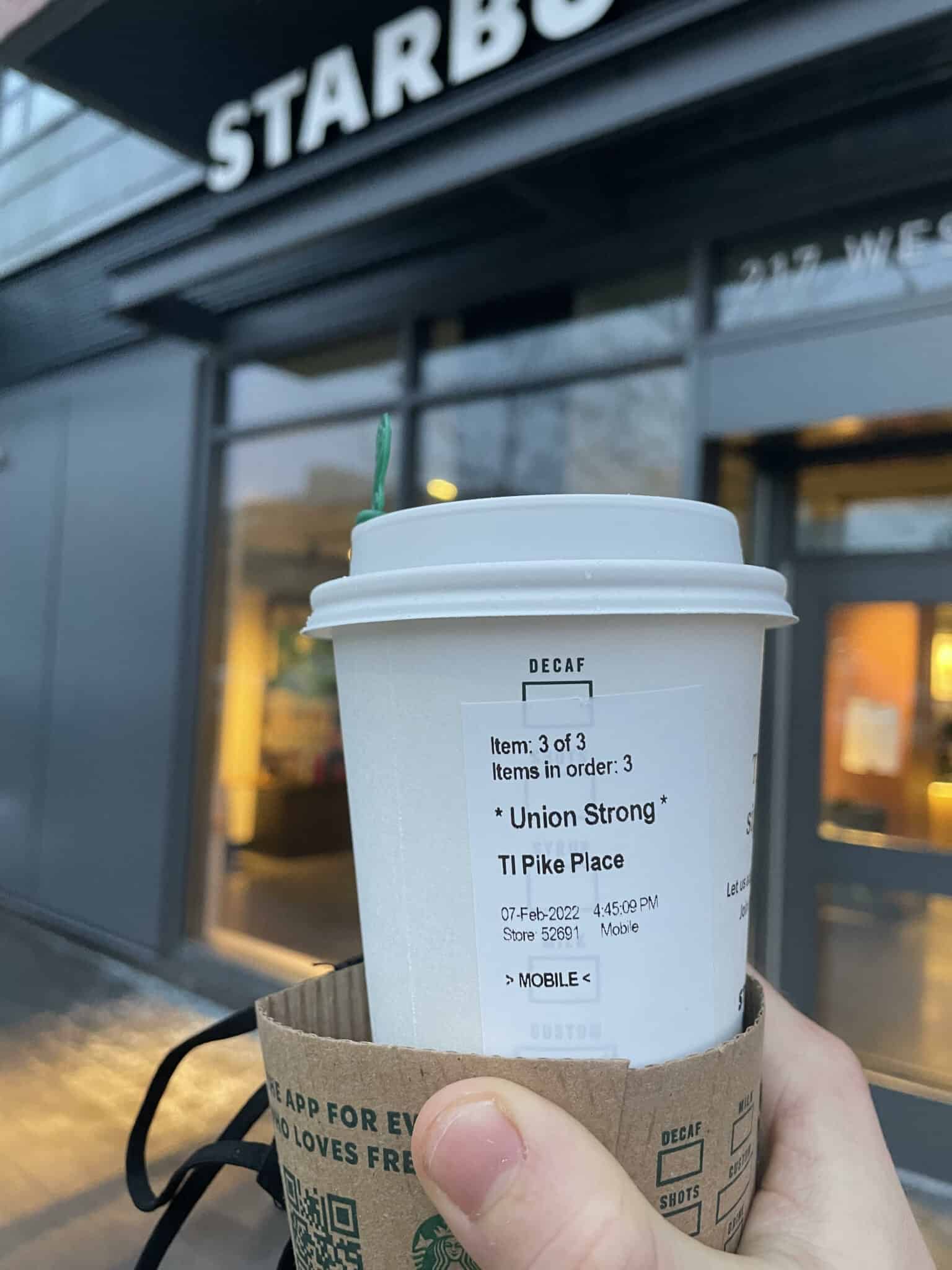
Jason Vazquez is a staff attorney at the International Brotherhood of Teamsters. He graduated from Harvard Law School in 2023. His writing on this blog reflects his personal views and should not be attributed to the IBT.
Starbucks allegedly continues to deploy unlawful tactics in an attempt to frustrate the ongoing organizing efforts unfolding at dozens of its cafes across the country. On Tuesday, the firm discharged seven members of a Memphis store’s bargaining committee, claiming they had violated company safety and security protocols. However, one of the dischargees, a shift supervisor, insists she had never heard of such policies, much less seen them enforced. The employees reportedly intend to file unfair labor practice charges with the Board in connection with the dismissals. The fact that even in such a high-profile context the existing labor law regime is so plainly unable to deter a major employer from disregarding its employees’ statutory rights to organize and join unions underscores the need for legislative reform.
A bipartisan bill introduced in the U.S. Senate on Monday aims to eliminate forced labor overseas by obligating transnational corporations “to disclose the use of forced labor in their direct supply chain.” The legislation, sponsored by Senators Josh Hawley (R-MO) and Kristen Gillibrand (D-NY), prescribes hefty civil and punitive damages for firms which fail to uncover and publicly disclose forced labor in their supply chains. Hawley, often identified as a purportedly populist, pro-worker Republican, declared in a press release that “the scourge of global slave labor must end and multinational corporations complicit in this moral atrocity must be held accountable.”
On the West Coast, the California legislature passed a bill on Monday requiring that most employers in the state provide up to two weeks of paid sick leave to any of their employees who are unable to work for Covid-related reasons. A similar state program expired in September 2021, and the updated legislation is retroactive to January 1, 2022. Governor Gavin Newsom (D) is expected to sign the bill into law in the coming days.






Daily News & Commentary
Start your day with our roundup of the latest labor developments. See all
July 15
The Department of Labor announces new guidance around Occupational Safety and Health Administration penalty and debt collection procedures; a Cornell University graduate student challenges graduate student employee-status under the National Labor Relations Act; the Supreme Court clears the way for the Trump administration to move forward with a significant staff reduction at the Department of Education.
July 14
More circuits weigh in on two-step certification; Uber challengers Seattle deactivation ordinance.
July 13
APWU and USPS ratify a new contract, ICE barred from racial profiling in Los Angeles, and the fight continues over the dismantling of NIOSH
July 11
Regional director orders election without Board quorum; 9th Circuit pauses injunction on Executive Order; Driverless car legislation in Massachusetts
July 10
Wisconsin Supreme Court holds UW Health nurses are not covered by Wisconsin’s Labor Peace Act; a district judge denies the request to stay an injunction pending appeal; the NFLPA appeals an arbitration decision.
July 9
the Supreme Court allows Trump to proceed with mass firings; Secretary of Agriculture suggests Medicaid recipients replace deported migrant farmworkers; DHS ends TPS for Nicaragua and Honduras